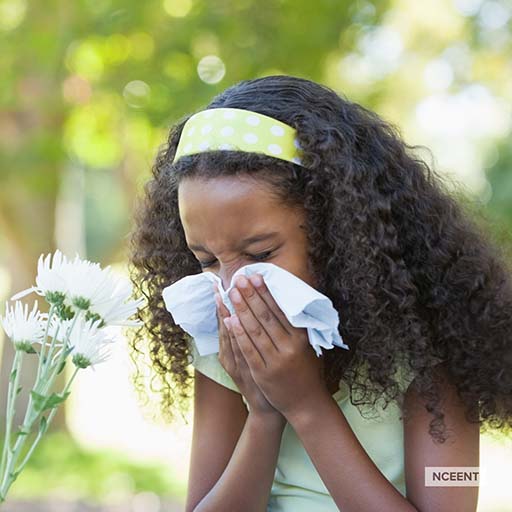Managing Spring Allergies

Tree pollen is the first class of environmental allergen which make an appearance during the spring season in the Triangle. Raleigh is the “City of Oaks” and the rest of the Triangle certainly has its share of oak trees.
Yellow pine tree pollen is a reliable marker for the onset of spring allergy season as it blankets homes, cars and streets for several weeks. Ironically, sensitivity to this yellow pine pollen is uncommon because it so heavy that it is not significantly aerosolized, i.e. there is little pine pollen “in the air.” The most potent spring allergens are the lightweight, aerosolized allergens such as oak, cedar and especially grass pollens.
Perennial (year-round) allergens, e.g. house dust mite, also play a role during this time.
How Long Does the Spring Allergy Season Last?
The length of the spring allergy season in the Triangle Region is primarily dependent on the pollination timing of the trees and the grasses. Tree pollen typically begins to appear in late February and tapers by May. Grass pollen begins to appear in late March and can extend into July.
Treating Spring Allergies
The first technique to employ is allergen avoidance: try to avoid the outdoors when conditions are most allergenic. The most active period of pollen release is in the mid-morning and early evening. Dry and windy conditions tend to disperse pollen more readily than cool, wet conditions. Mattress and pillowcase covers can help avoid dust mite exposure. Washing sheets, blankets and stuffed animals at a high temperature (120 F) can eliminate many dust mites. If symptoms persist, medicines can be effective. Nasal steroid spray (such as fluticasone) can help nose and eye symptoms. Eye drops (e.g. olopatadine) can help itchy, watery eyes. Anti-histamine spray (like azelastine) can be very effective for nasal congestion and drainage. Allergy medicines “by mouth” such as levocetirizine (a non-sedating anti-histamine) and montelukast (a leukotriene inhibitor) help many people. If allergen avoidance and pharmacotherapy are incompletely beneficial, the next step is immunotherapy. The NCEENT Allergy Department offers sublingual immunotherapy, under the tongue, allergy treatment. It is a special “cocktail” of allergens—tailored to the patient’s specific sensitivities. This therapy typically lasts for 3-5 years and then typically confers a lasting benefit after stopping treatment.
The first step in treating symptoms of allergic disease is to get tested. Call 919-595-2000 today to schedule an appointment!
By Kevin G. Hueman, MD
Kevin G. Hueman, MD, FACS, FAAOA, is a board-certified Otolaryngologist / Head & Neck Surgeon and a fellow of the American Academy of Otolaryngic Allergy. He sees adult and pediatric patients in our Cary and North Durham offices.



